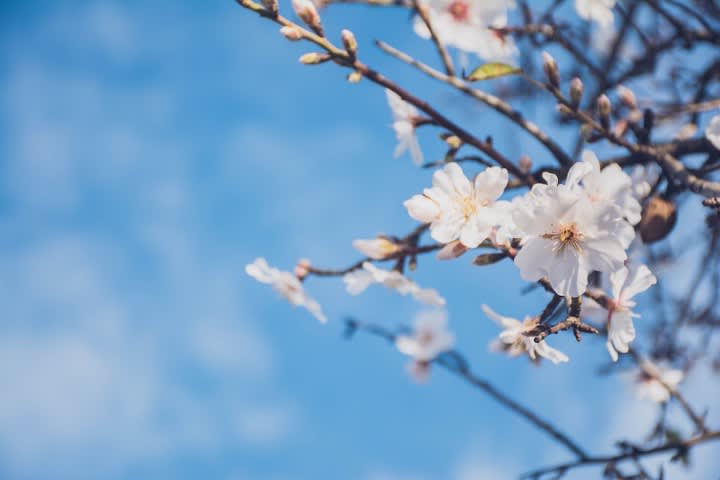What can you learn from Plants about growth?
To become your best self...

Plants have existed for a very long time. Some scientists believe that plants appeared on Earth before animals. This is because it is assumed that without the presence of plants, animals would not be able to emerge due to a lack of food to feed on. Plants are growing everywhere on the planet, even in the most hostile environments such as the desert or the North Pole.
Plants grow in the same way everywhere on the planet. They grow their first leaves after sprouting from a seed, usually only one or two. After the first two leaves, they begin to grow more and more leaves and new roots until they are ready to grow flowers and seeds, to reproduce.
Now, from a psychological standpoint, what can we learn from plants about growing ourselves as humans? The answer is that we can learn a lot about how to approach developing and growing as individuals and humans. This article will present a method for developing both your hard and soft skills by drawing inspiration from the way plants do it. And how to remain rooted while sprouting leaves into the world.

Your Roots
Roots are the first thing that most plants develop. This is also true for the majority of people, with their roots being their family and childhood friends - but mostly their family. Consider family to be the first roots, which (should) become the plant's strongest and most resilient roots as it grows. Friends are the smaller roots that sprout from the larger (family) roots.
This is how it should be, but unfortunately, it isn't always the case. People begin to forget more and more about their family as they get older, beginning with puberty and only increasing thereafter. They spend more time with their friends and coworkers and less time with their families. This is a huge mistake.
This is the first lesson that plants can teach us. Nothing will go right in your life if your family "roots" die. Family is the most important thing in your life, period. While some people may have a more difficult family situation than others, you must take the best possible care of your family relations because they are the people on whom you can always rely. Career, hobbies, friends, and spouses all take a secondary spot.
If your family situation is not that great, work on it! Get closer to your family, communicate with them, resolve your conflicts and strengthen the bond you have with them. Communication is the key! It may be stressful, and it may make you scared to start those difficult conversations with them, but this is an absolute necessity, no matter how the situation may be in your own family.
"All happy families are alike, but every unhappy family is unhappy in its own way " - Leo Tolstoy
If you do this, you will see that every aspect of your life will improve. You will feel happier, and more positive, and you will love spending time with your close ones. If your family roots are strong, every other aspect of your life with blossom and grow. And no matter what happens with your career, friends, or amorous relationships, you will be able to go through anything, because your roots will be strong.
This advice about the roots comes from someone who spent most of his life away from my family and siblings. I've been moved a lot around since my mother divorced my father and didn't have enough finances to take care of both me and my brother. I lived with aunts for around 2 years, when I was around 8 to 9 years old, and then, around 11 years old I moved with my grandparents. I lived there until Highschool, for around 5–6 years. I had where to sleep and what to eat, but my grandparents weren't such warm people, so I didn't have anyone to talk to or who to teach me important life lessons. When I finally reached Highschool, I was alienated from my family and didn't communicate with them too much. I retreated into video games, music, and reading and didn't spend much time with my family, even if we were in the same house. I didn't know how to.
This means that my "roots" were weak when it came to my family, and I felt that very strongly in my other aspects of life. Any defeat when it came to school or love life would shake me like an earthquake, as I didn't have anyone to talk to and speak about my troubles. This also gave birth to depression and social isolation on my part.
If I had my roots well grown with my family, everything would have been easier, and I am sure I wouldn't have struggled with depression for more than 8 years (my high school and college years). In 2021 my mother died due to Covid19… and I honestly regret nothing more in my life than the fact that I didn't open up to her, tell her about my troubles and just… spend more time with her… growing those family roots that are so important.
That's why I urge you to build your family roots. While your family is still alive you have this opportunity. Don't make excuses, just go and talk with them, no matter what. At least, you will know that you tried. Because if you don't even try, you will carry that regret until the day you die… and there is absolutely nothing worse than that, trust me.
Now, that you know why the roots, which represent your family are so important, let's talk about growing your leaves.

Your Leaves
If your roots are strong, you can now focus on growing as a person. This growth can be psychological, spiritual, in the skills and knowledge areas, and even physical.
Everything you do or learn in this world starts small. If you ever tried learning something new, you know that you suck at it in the beginning, no matter what that is. That's why you must grow layers after layers of leaves when learning.
Plants usually start with only 2 leaves. They grow bigger and bigger, and when they are big enough to feed the plant more than it needs for sustenance, it starts growing another layer, and another, and another.
That is the lesson you should also take right there. When learning something new, be it a skill, going to the gym, meditating, or praying, start in small doses and small things.
If you want to become a writer, write at least 1 article a week or 1 page a week. Then increase that amount after each month. In the second month write 2. And then 3, and 4. Before you know it, you would write tens of pages each month.
When you learn a skill, focus on just one thing around that skill. For example, if you want to learn how to ride a bike, repeat your "take-off" until you are sure you have mastered it; when you feel confident about your balance and take-off speed, you can then try getting on the bike for a few meters.
If you wanna get into bodybuilding or sports in general, start small. Go one day a week in the beginning and exercise for 30 minutes. Then build on that either by adding more time a day (45 minutes) or by adding another day (exercising 2 days a week).
If you want to meditate or pray, do the same as with the gym - start small. Meditate for 15 minutes, once a week for a month. Then 15 minutes twice a week. Before you know it, you would have "grown" a very healthy habit.
Just like plants, the best way to grow is by doing small and iterative steps. Just as a plant can't grow 50 leaves at once after it has just sprouted, you cannot grow a habit by starting big. You need to start small and iterate. Consistency is the key. And the habit of consistency can only be built if you start small so that your brain won't fight the change you are trying to make, but rather adapt to it.

Blossom
Once a plant has developed strong roots and a large number of leaves, it is strong enough to reproduce and give birth to new plants. That is when it begins to produce flowers, fruits, and seeds.
In the case of humans, once a healthy habit becomes ingrained in one's personality, it is possible to develop additional healthy habits. Once you've mastered one skill, you'll be ready to tackle others in the same field. Or you can learn new, independent skills, having more experience in the process of learning.
As you learn, it's important to focus on one thing at a time, to give yourself time to change, and also perfect the skill you just learned. After you have successfully learned a new skill or formed a new habit, you will have the strength and confidence to form further healthy habits.
If you succeed the first time, it will become increasingly easier to succeed the second time. The first year of a tree's life, when it sprouts, is the most difficult and dangerous. It becomes easier to survive and blossom year after year.
So be focused on one thing. Only one thing. And grow it, week by week, until you are ready to blossom because of your success - and add up more skills or good habits after.
Remember, growth is a marathon, not a race!
About the Creator
Pircalabu Stefan
I love writing about life and technology. Really passionate about all technological advances and Artificial Intelligence!
Reader insights
Good effort
You have potential. Keep practicing and don’t give up!
Top insight
Heartfelt and relatable
The story invoked strong personal emotions






Comments (1)
I thank you for life advice. I love this article.